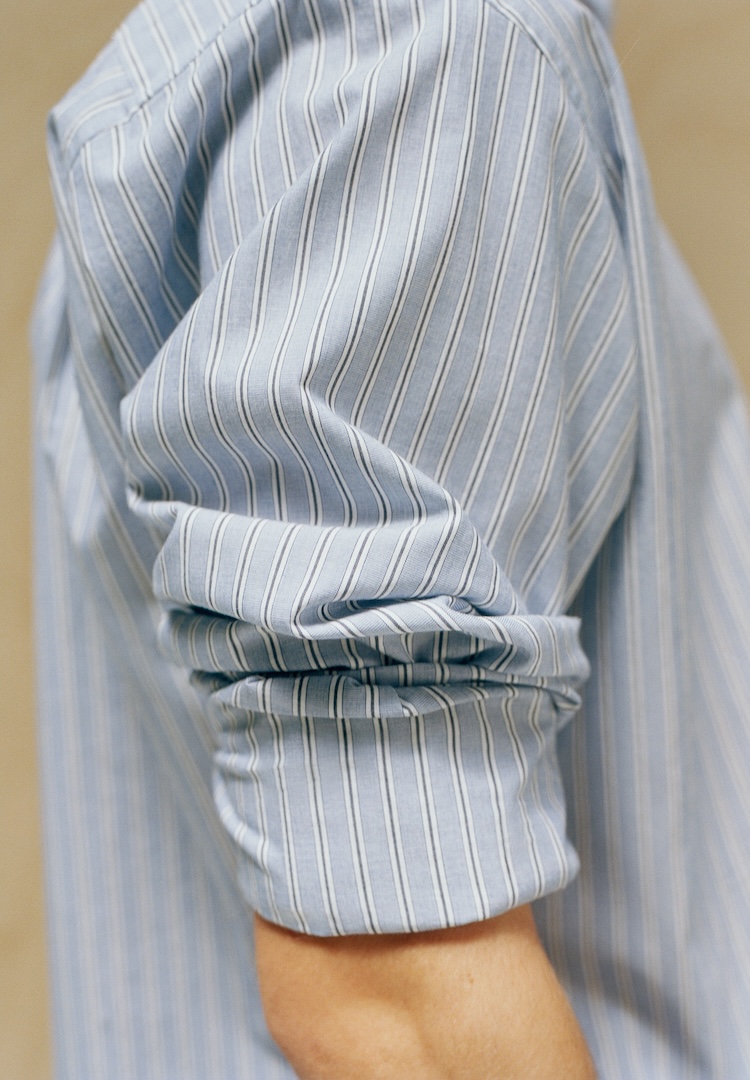
The rampant use of synthetic materials by ultra-fast fashion brands is a major contributor to global pollution. The manufacturing, washing, transportation and disposal of synthetic clothing contribute up to 35 per cent of microplastics found in the ocean, and the depletion of fossil fuel resources. The consequences are felt from the North Pole to Antarctica, seeping into our drinking water, our food chain, and ultimately, our daily lives.
For more fashion news, shoots, articles and features, head to our Fashion section.
In response to these alarming statistics, the ‘slow fashion movement’ has turned its focus to responsible consuming: buying less, buying pre-loved and practising good garment care. But there’s another piece to the puzzle: choosing natural fabrics. Unlike the synthetics that will outlive us all, natural fibres follow the rhythm of life. They’re grown, worn and, when it’s time, they return to the earth to decompose. It’s poetic, really.
As the industry shifts toward more sustainable practices, brands are increasingly looking to natural materials and their benefits to our bodies and the planet. Muji is one such example. Through its premium apparel range, Labo, the innovative Japanese retailer is highlighting the beauty of premium, natural fibres.
“Careful selection of materials for all Muji product design is a core pillar of our brand philosophy,” explains Muji Australia’s General Manager of Marketing and Public Relations, Vincent Tang. “Our materials not only showcase our unwavering celebration of natural fabrics and commitment to minimising waste, but also must provide a functional benefit to the wearer rather than an embellishment.”
View this post on Instagram
Newly reintroduced into Australia, Muji Labo features recycled wool, Lyocell silk, khadi, and washi, a traditional Japanese paper fibre. Each has a purpose, with unique properties to offer. If you’re ready for your winter wardrobe to be au natural, the Muji Labo range is available now. Here are a few materials worth looking out for.
Washi
You may have encountered washi paper in a traditional Japanese home interior (those gorgeous paper screens!). Traditionally crafted from the fibres of the paper mulberry plant, washi has become an unexpected contender in the arena of natural textiles. It biodegrades rapidly – 82 per cent of composted washi can degrade within just 35 days – so it’s planet-friendly from the beginning to the end of its lifespan. When cut into delicate strips and blended with an organic cotton yarn, washi lends itself to a lightweight, breathable fabric perfect for winter layering.
View this post on Instagram
Recycled wool and cashmere blends
Both wool and cashmere are excellent insulators – their tight fibres trap body heat to create a consistent thermal barrier against the cold. Whether sourced from goat herders on the Eastern Mongolian Plateau or nomadic Tibetan yak farmers, cashmere and wool are highly sustainable, natural materials that biodegrade quickly and return essential nutrients to the earth.
When repurposed, they become an even easier choice for winterwear designs. Muji Labo’s current offering of recycled blends hails from the Bishu region in Japan, where the fibres are crushed and respun, given a new life for another season. Much of the collection’s wool, as well as its cotton, is left undyed, celebrating the fibre’s natural beauty and reducing the natural resources required by the dyeing process, as well as waste produced. Minimising production processes in this way is a key part of Muji Labo’s sustainable design philosophy.
View this post on Instagram
Lyocell silk
For the most bone-chilling winter days, there’s Lyocell silk innerwear, made from the wood pulp of eucalyptus trees through a closed-loop, organic solvent-spinning process. Often, Lyocell producers sustainably source materials from certified origins to protect vulnerable environments from
deforestation. Like silk, Lyocell boasts excellent moisture-wicking properties, meaning the fabric remains dry against your skin, even as you sweat. By keeping you dry, it better retains warmth when you step out into the cold again.
Khadi
As an organic cotton weave, khadi already scores well on the sustainability scale. But what makes khadi unique is that it takes less energy to produce. Khadi has a low carbon footprint because it’s woven by hand – specifically by artisans from Kolkata, India, to whom the fabric holds deep cultural significance. It’s a rugged weave that can vary in texture and thickness, keeping you warm during winter months and cool in the summertime.
This article was originally published in Fashion Journal issue 197.
The Muji Labo collection is available exclusively at Muji Chadstone, Muji Emporium and Muji The Galeries. Find it in-store and view the lookbook online here.
This article From washi to recycled wool, a look at the unexpected fabrics in Muji’s Labo line appeared first on Fashion Journal.
2025-05-13 05:55:00
#washi #recycled #wool #unexpected #fabrics #Mujis #Labo #line
Source link
















